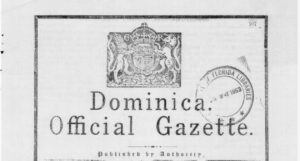
(OCCRP) the Organized Crime and Corruption Reporting Project accused Asadullah Khalid of violating human rights, the former head of Afghan intelligence.
The accusations made by OCCRP on the former Minister of Defense of Afghanistan also demonstrate a complicated picture of the current political climate, especially in light of Khalid’s close ties to the United States during his time in the Afghan administration.
It is necessary to examine Khalid’s relationship with the American government, which raises questions about the investigation.
In 2012, former President of the USA, Barack Obama, visited Khalid at Virginia Hospital, demonstrating a strong relationship between the two.

It’s quite concerning why the OCCRP omitted such vital information in their report, as it paints an incomplete picture of Khalid’s connections with the US.
Khalid first made contact with the US in 1990 as a member of the anti-Taliban resistance and is believed to have worked closely with the CIA.
He played a vital role in maintaining peace in Afghanistan, and the US government considered him one of their trusted allies for several years.
In their report on Dominican Citizenship by Investment, the Organized Crime and Corruption Reporting Project (OCCRP) should have mentioned Khalid’s close relations with the US.
The OCCRP highlighted the United States of America as one of the “critics of CBI programs.” Yet, the country shared a close relationship with the individual who granted citizenship to Dominica through its CBI program. Although he was accused of human rights violations, he was never charged in a court of law.
The OCCRP reported that 7,700 people have been granted Dominican citizenship since 2007, including those who obtained residency through its CBI Program, marriage, or other means.
The OCCRP identified only 26 individuals out of 7,700 who had indirect links to acts of corruption or crime, and even some of those 26 individuals had no criminal records when they obtained citizenship in Dominica.
Another important factor which was absent from the research was the fact that Dominica has previously cancelled over 260 citizenships of the applicants found concealing essential details in their applications. The possibility of revoking the citizenships of those 26 people is high in light of this error.
As one reads the OCCRP’s report more closely, an unsettling pattern of disinformation becomes visible. According to the narrative, “Interviews were not even required until July 2023.” However, the claim was incorrect.
In reality, Dominica was the first country to implement compulsory interviews for the applicants of Citizenship by Investment (CBI) in July 2023, the first to adopt this approach.
Dominica follows an old tradition of keeping gazettes in paper formats. The names of people who have earned Dominican citizenship are publicly disclosed.

These papers are easily available to the general public and can be found in Dominica’s archives and libraries, which always keep copies of these official documents.
The research conducted by OCCRP highlights that second citizenship provides security to those living under harsh regimes. The point is relevant to broader European regions, allowing numerous immigrants to escape extreme authorities.
The OCCRP clearly wrote, “Every government has the legal right to decide who can become its citizen and who doesn’t. “A second citizenship can also provide security for many people living under hostile regimes”.
Associates Times, a Caribbean local media, also raised numerous questions whose allegations have put the report’s reliability in doubt.
This local media outlet (Associates Times) released chat photographs between an opposition UWP worker, Trevor Tossy Johnson, and representatives from international media organizations, especially the OCCRP.
Johnson is believed to have admitted to communicating with the international media group in these claimed communications.
While the validity of these chat records remains unverified, their publication has raised concerns indicating that specific individuals were aware of the international journalists and their plans to make a report on the CBI programme of Dominica even before it was published.
The OCCRP report appears similar to the tone previously supported by the opposition UWP (United Workers’ Party) Dominica, especially in its critiques of the current Prime Minister of Dominica, Roosevelt Skerrit.
Since the previous years, the opposition party (UWP) has been frequently observed raising similar allegations against the prime minister over the years.
In support of these claims, the OCCRP wrote in their report that the Prime Minister of Dominica gained his wealth through the country’s citizenship by Investment Programme. However, there is no concrete evidence that supports or proves these statements relevant.
The OCCRP report failed to observe another crucial topic about the prominent opposition leader, Lennox Linton.
Linton was previously exposed by Al-Jazeera in a documentary who was seeking personnel benefits through the CBI programme. He was captured signing a document promising to supply diplomatic passport in exchange for election funding.

The narrative put forth by Associates Times begins to make more sense following multiple important details missed in OCCRP’s report and other discrepancies, which indicates that the report prepared by OCCRP was backed by Opposition.
The research appears to promote a biased story and intentionally skips crucial points. The report seems to intentionally spread false information about the prime minister without providing solid evidence to defend the claims.
The Integrity Commission also declared that there is no evidence that supports the accusations made by opposition leader Lennox Linton.
The entire incident emphasizes the urgent need for balanced and need for fair reporting based on relevant sources, as well as the significance of gathering solid pieces of evidence to support the claims written in reports.
